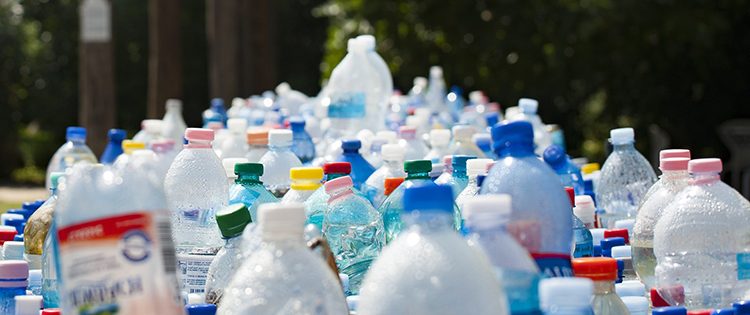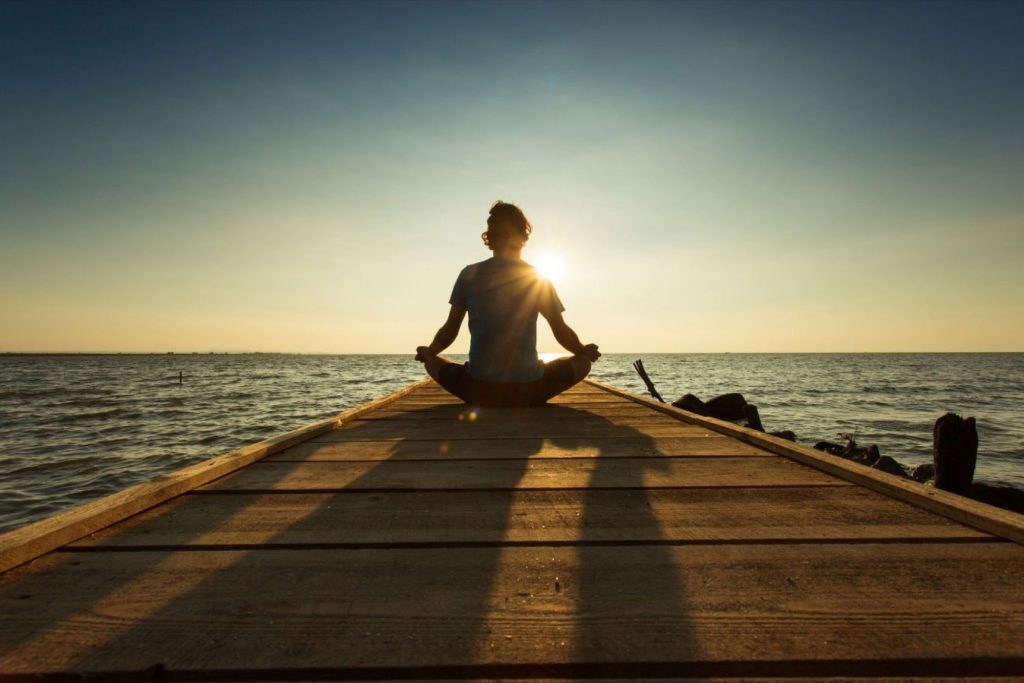
When I studied Economics at Uni I found myself largely turned off by much of the theorising that took place, it seemed so far removed from what was actually going on in day to day life. However, there were a few principles which struck me as being absolutely bang on. One of them, was ‘the tragedy of the commons’, which helps to explain a lot of the destruction that goes on in our world, and which I’ve been reminded of as I embark on a plastic free month.
The concept pertains to any situation whereby there is a shared resource, such as common land, a river, a forest, the sea, the earth’s atmosphere etc, and the users of the resource behave like self-interested actors, steadily depleting it as time goes on, instead of pulling together to protect and optimise the resource.
Each individual is wrapped up in their own life story, attempting to get by, and extract as much joy and comfort from life as possible. If there is a resource which they consider benefits them in some way, and they have lots of access to that resource, then they will keep on extracting well above the sustainable limit. Now if the other users of the resource don’t maximise their usage, then it’s ok. But the problem often arises that many of the actors involved in the use of the resource also seek to maximise their own personal benefit and the aggregate effect is an unsustainable depletion of the resource so that there is less and less left for people to gain utility from.
Now very evidently, there are many corporates who engage in an unsustainable depletion of resources, and its having such a destructive impact – its like the tragedy of the commons on steroids.
However, before we get on our high horses about the corporate impact, shouldn’t we perhaps look closer to home and examine our own behaviours? Because are we not all responsible for using up an unsustainable amount of energy to power of our homes, our gadgets, and the construction of our consumer products? How many of us chuck on the air conditioning when we go to a hot country? And who amongst us is eating more than a sustainable level of fish from our seas? And how many of us use plastics? On this latter point it would seem it is all of us. And this is a huge problem, because 12.7 million tonnes of plastic are being dumped in our seas every year and it is being swallowed by every part of the aquatic food chain.
I was always vaguely aware that I was using a lot of plastic, but its only since I’ve tried going plastic free that I’ve realised JUST how much I am using, its actually really scary. Its not just plastic bags from the supermarket, which can be easily substituted, it’s the packaging on almost all of our fruits and vegetables from the supermarkets. In fact, it appears that 90% of all goods from the supermarket involve plastic packaging, its hard to escape it! And if you wish to buy food on the run, often times that’s in plastic packaging too. Humans have been living on the earth for at least 2.5 million years, and plastics only really came on the scene in the 50s. Since that time, we have produced 6.5 billion tonnes of plastics, and in the next 32 years, we are set to double that number (each year we use an average 8.4% more plastics than the year before). Unless of course, we the people say enough. We’ve lived without plastics before, we can do so again.
Governments have proven inept at protecting our common resources, precisely because they’re interested in winning votes, and we the electorate have demonstrated so much apathy towards our common resources that it has provided little in the way of motive political force. Corporates continue to be mainly driven by profit motives, so the only way that they are going to change their profit driven use of cheap plastics is if we the people show them that we favour more organic produce, that can be more easily broken down, and which won’t fill our land and our seas with hardcore pollutants.
You see, as Herschel once said, the opposite of good is not evil, its indifference. And for as long as we all remain indifferent to the hundreds of millions of tonnes of plastic being produced each year, we will be a party to a tragedy of our common lands and our seas, and leave our children a plastic soup of an ocean and an environment whereby the landfill plastics leech into our soils, harming the soil fertility, and into our water supply, adding to the health burden we are already facing from all sorts of commons tragedies like the air we breathe and the denuded and de-nutrified food we eat from industrial agriculture sources.
In recent years, tests have been carried out on our water supplies, and it was found that billions of people globally are drinking water contaminated by plastic particles, with 83% of samples found to be polluted. Now would any of us choose to consume plastic of our own volition? I highly doubt it. It seems like an inherently poor idea, and yet, hidden within so much of our water now are plastic particles that will slowly clog up our cells and tissues, mirroring the fish in our seas, which are slowly choking on the by-product of our rampant consumption patterns.
So let us all take individual action, and see if that aggregates. Its when people start demanding gluten free, or dairy free, or vegetarian options, or carbon neutral products that the early adopters and then later the corporates listen, and the government are more likely to take action if they can see a real and meaningful movement by the populace. Politicians are populists by nature, and if they think they can gain an advantage by announcing a popular policy first, they will. So let’s give them the cue.
I will admit that from my research thus far that it’s almost impossible to live a regular life without using plastics. But I bet we can all reduce our plastics consumption by 50%. That is a game changing shift, and the more we show a preference for plastic free goods, the more the corporates will provide more options, and then 3 years from now, we can reduce by another 50%, adding further weight to the movement. The momentum would be extraordinary and we could keep iteratively using less and less until eventually, we can all be using perhaps only 5% of our present consumption. Maybe even one day we can get back to where we at 60 years ago, with minimal plastics production, and we can turn the tragedy of our commons into a triumph.
It starts with us.
Will’s tips for reduced plastic consumption
*Put a £1 coin in the charity box of your supermarket every time you use a plastic bag, that will soon help you remember to take a bag!
*Order fruits and vegetables via a veg box scheme such as Abel and Cole and insist on no plastic. Shop at farmers markets (both initiatives are healthier and better for the environment)
*Buy your toiletries from places like lush, using natural products without the packaging.
*Install a water filter such as Berkey to drink purer water without using plastics – and purchase a reusable bottle to take water with you each day.
*Take a reusable coffee cup with you.
*Avoid using straws to drink liquids with.
*Use a food flask for carrying food, instead of buying food on the run – its far healthier if you cook it at home and take with you, and the beauty is you only have to half cook it while getting ready in the morning because the food continues to cook in its own heat once inside the flask.

The Benefits of Beeja Meditation
- Reduce stress and anxiety
- Greater clarity and calm
- Increase focus
- Enhance relationships
- Sleep better
- Feel energised



